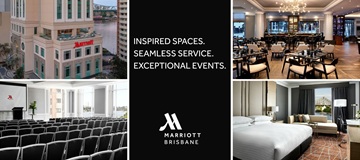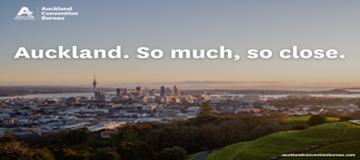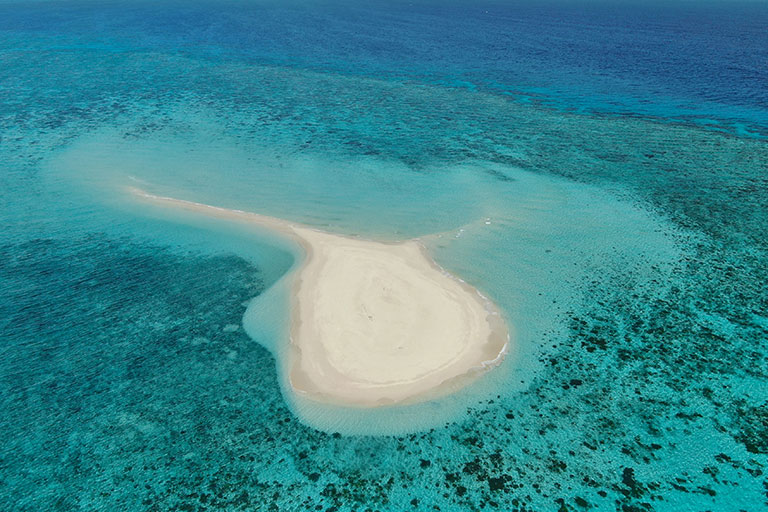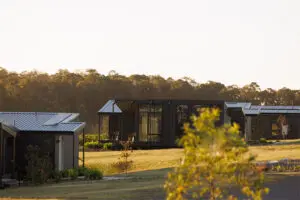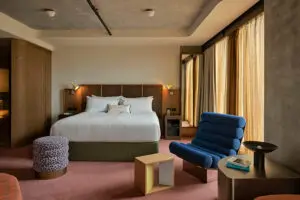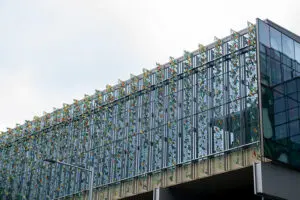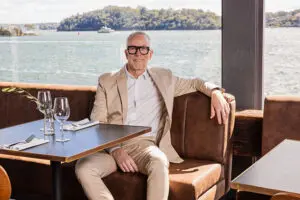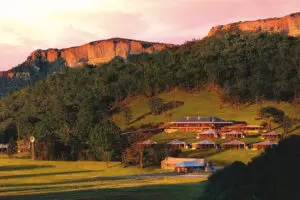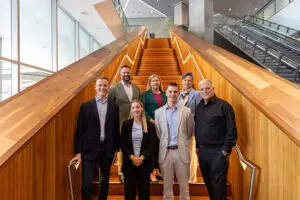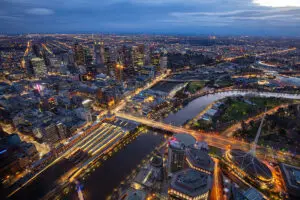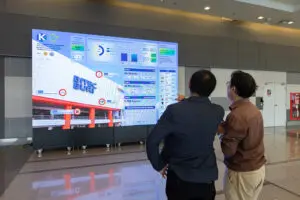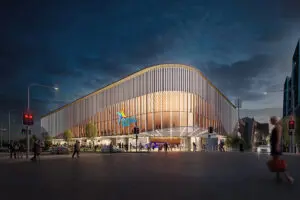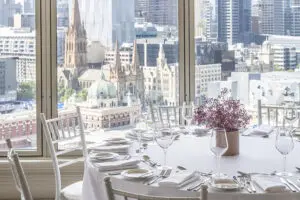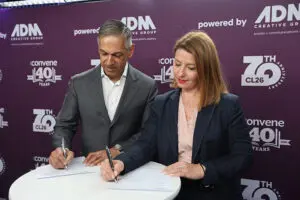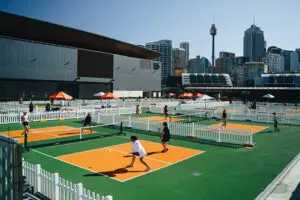While UNESCO’s committee meets in Riyadh, Saudi Arabia, to discuss the status of the sites on the World Heritage list in person for the first time in four years, at home in Australia, the Cairns and Great Barrier Reef region are “ecstatic” that the reef has escaped being listed as an “in danger” World Heritage site.
micenet caught up with Rosie Douglas, head of Business Events Cairns and Great Barrier Reef at the region’s Sydney showcase in August to dig into the draft decision – published in July – to keep the reef off the endangered list and what it means for the destination.
“Everyone’s ecstatic,” said Douglas. “It was actually a really big concern [for] everybody.
“For us it’s really, really important that people visit the Great Barrier Reef and there’s a couple of reasons for that,” she told the wider group of attendees.
“One is that every operator that goes out there also participates in reef monitoring…but also things like the crown-of-thorns [starfish] eradication as well – they keep an eye on the coral cover, looking at the changes in it and all of that data is actually fed back into the Great Barrier Reef marine park authority’s database [with] the federal government responsible for looking after it.
“If people don’t go to the Great Barrier Reef those vessels don’t operate and none of that reef monitoring happens.
“So, when people say, ‘oh I don’t want to visit Great Barrier Reef because I don’t want to harm it’, you’re actually doing the exact opposite.
“And the other thing is also that when people get out there, they actually truly understand – there’s so much negative media about the bleaching, climate change, that type of thing, but when you physically get out there, you talk to the marine biologists and you physically see it for yourself, you get a greater appreciation about what it’s all about.
“And the reports that we’ve got for the Great Barrier Reef and our part of the reef system…is it’s the best coral coverage there’s been in 30 years….so it’s looking really good at the moment.”
Douglas told micenet she believed some media reporting had misrepresented the state of the reef in terms of the impact of coral bleaching events.
Both Douglas and the head of Tourism Port Douglas Daintree, Tara Bennett, who joined the conversation at the showcase, pointed out that permits to go out on the reef for tourism purposes are rigorously assessed and there are parts of the World Heritage area that includes the Great Barrier Reef that are visitor-free zones to prioritise conversation.
And, in order for tourism operators to receive an extended reef-going permit, they must be eco-certified by either EarthCheck or Ecotourism Australia.
“The permits are actually one of the major assets that all the reef companies have,” said Douglas.
She also highlights that many local operators, if they’re not directly involving in reef conservation activities contribute to conservation programs by providing funding for them.
Sustainability was very much front and centre at the Cairns and Great Barrier Reef Showcase,
From a locally brewed beer from Hemingways Brewery that gives half of its profits to reef research to hotels which turn all food waste into compost – Hilton Cairns – have put the food calories on their restaurant menus – Crystalbrook Collection properties in Cairns – or removed single use plastics – Pullman Reef Hotel Casino and Crystalbrook – to a spectacular dinner venue in the middle of the rainforest that has planted over 2,000 native trees to regenerate their site, almost every product featured in the showcase had their sustainability initiatives on show.
“Our industry is based on its natural assets, so if you don’t have the natural assets, you don’t have an industry,” said Douglas.
“We’ve been leading the way for eco accreditation for probably 10 years, 15 years – it’s just stuff that the industry’s actually done because they want to protect their patch basically – whether it’s the reef or the rainforest or whatever, so they’re constantly putting back into the environment.
“They want a sustainable product to be able to sell into the future.
“The big thing about sustainability and minimising carbon and all the rest of it [is] you’ve got to start somewhere. To get to net zero by 2050, there’s going to have to be some really radical changes in the delivery of products and services.
“But what we also say to conference delegates is that there is certain things about a conference that are going to create carbon – absolutely – but then what you should do is work with operators that [are] minimising [carbon emissions] so that you’re sort of, by default, helping with the offsetting of it.”
Luckily, there’s plenty of them in Tropical North Queensland.

